


Last week Chicago Bulls basketball star Derrick Rose wore a T-shirt in warm-ups that read “I Can’t Breathe,” protesting the non-indictment of a New York police officer whose chokehold killed Eric Garner. Cleveland Cavaliers superstar LeBron James wore a similar shirt the next night, telling a reporter who asked him after the game if his action was a “Cavaliers thing,” that no, it was a “worldly thing.”
A few days before these pro basketball players’ protests, five members of the St. Louis Rams football team ran out of the team dressing room before kick-off with their hands raised above their heads, a reference to the “don’t shoot” gesture that protesters have been using after the shooting of teenager Michael Brown in Ferguson, Missouri.
Predictable outrage ensued. The St. Louis Police Officers Association issued a statement saying the organization was “…profoundly disappointed” with the five players,
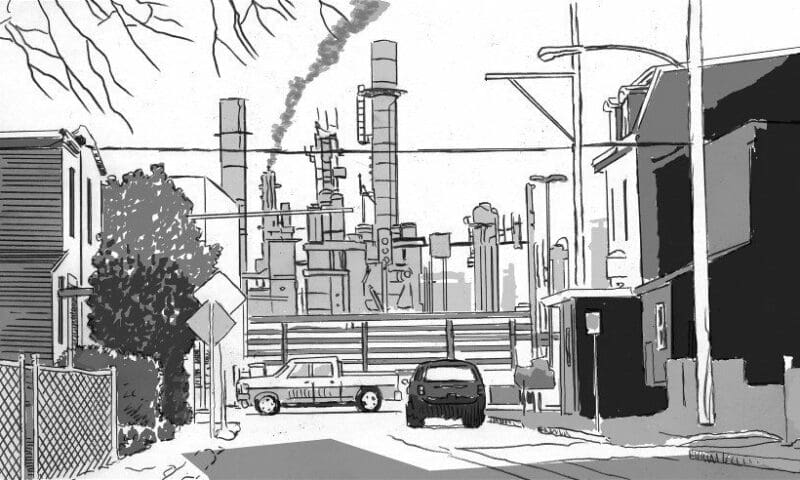
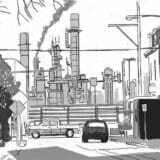
“Man, what can I do?” DeMarkus Williamson paced, hands on his hips, head down. He was dressed in oversized basketball shorts and a tee.
“Teaflake doesn’t strike me as the forgiving sort.” Little Joe said. “But then again, you didn’t steal his money. He’s a logical cat.”
“Still,” the young man said, gesturing with his hands. “It was my girl that done it, and like he’s gonna believe I wasn’t in on it.”
“How much are we talking about?”
“She made off with a shade over twelve grand. Settin’ me up to be the chump.”
“Shit,” Little Joe said, whistling.
The two were in a rear bedroom in a clapboard house in Richmond. Out a translucent-curtained window, the metal spires of the century-old Chevron refinery could be seen in the near distance. Recently the progressives in the city, outspent mightily to the tune of $3 million by Big Oil backing its hand-picked candidates,
» Read more about: The Dixon Family Chronicles: “Live for Today” »
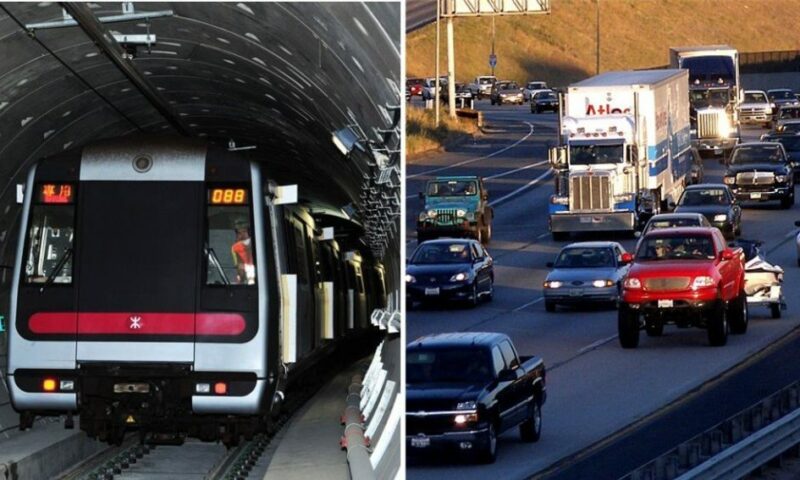

When people think of Los Angeles, what comes to mind first? Maybe Disneyland, Hollywood for sure, perhaps our proximity to the beach, but definitely traffic—the infamous Los Angeles freeway traffic. Is there ever an answer to this omnipresent problem?
Over this past summer, I had the privilege of spending time in Hong Kong, thanks to the Henry Luce Foundation and the Urban Environmental Policy Institute at Occidental College. For six weeks, I explored the area while researching the political and education underpinnings of rooftop farms in Hong Kong. When I made the transition back to L.A., I found myself reflecting on different aspects of life, including food justice and transportation, and making unexpected comparisons between the two places.
Hong Kong has a population of more than seven million people and is one of the most world’s densely populated areas, with about twice the population of Los Angeles.
» Read more about: Hong Kong to L.A.: Reflections on Transit Transformation »
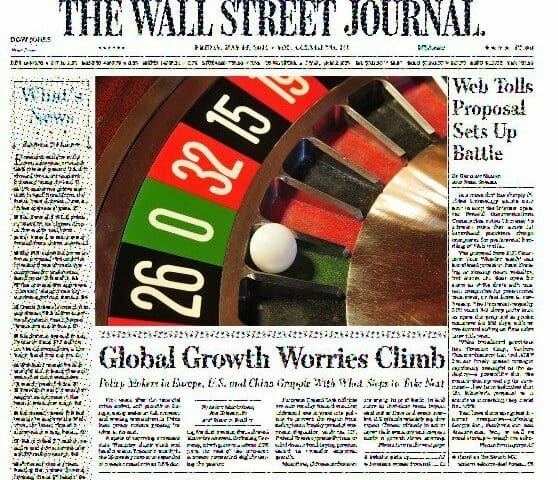

“Public Pensions Need Gamblers Anonymous,” blared the op-ed by the American Enterprise Institute’s Andrew Biggs in the Wall Street Journal last week.
Can it be true? Did the trustees of CalPERS just take retirement funds for 1.7 million Californians – backed up by our tax dollars – to Las Vegas and put it all on black?
Of course not. Biggs is probably talking about speculating through black box investments and shadowy hedge funds, right?
Wrong again. The risky investing strategy we are warned against: the stock market.
As a measuring stick, Biggs trots out the “100 minus age rule,” which says that an individual should invest no more than that percentage amount in stocks and other so-called risky assets. (So a 30-year-old might have 70 percent of his or her investments in stocks and 30-percent in things like bonds,
» Read more about: Pension Cutter Confuses Stock Market With Las Vegas »
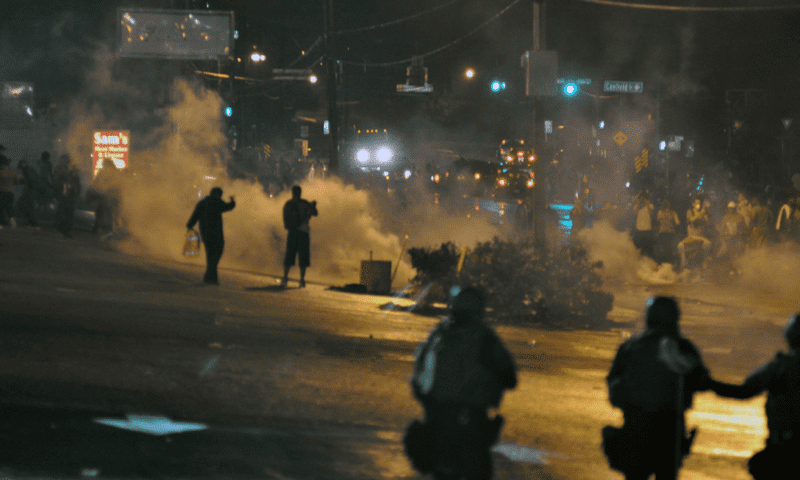

A year and a half ago, I wrote an article for the Huffington Post that I called “Will the Killing of Trayvon Martin Catalyze a Movement Like Emmett Till Did?” I pointed out that Rosa Parks was thinking about Emmett Till — a 14-year-old African American who was brutally murdered by two white thugs in Mississippi in August 1955 — when she refused to move to the back of the bus in December of that year and sparked the Montgomery bus boycott which, in turn, triggered the civil rights movement.
At the time, I hoped the answer to my question would be yes, but I wasn’t sure. I wondered whether the protests over the murder of Trayvon Martin, and the acquittal of his killer George Zimmerman, would coalesce into a sustained movement.
Now we can see that, indeed, a movement for social and racial justice has emerged from the Trayvon Martin murder and more recent events —
» Read more about: The Dawn of a New Racial Justice Movement »


With the expensive mid-term elections followed by Thanksgiving and Black Friday, followed by Cyber Monday, you’d think that people wouldn’t have much money left over for Giving Tuesday. But if current trends continue, charitable contributions this year may actually match pre-Great Recession levels. We won’t know about 2014 for a while, but the results are in for last year: Americans gave $335 billion in nonprofit, tax-deductible gifts in 2013.
The vast majority of that money did not come from rich people. Yes, occasionally a Mark Zuckerberg will give away a billion or so, which certainly ups the total. But on the whole, those in the top 20 percent give away about 1.3 percent of their income while those in the bottom fifth donate about 3.2 percent of their incomes. That’s unfortunate because America’s “ultra-rich” population grew by about six percent last year.
If you’re bummed by the recent election and feel like the clock’s been turned back for women’s rights, take yourself to a screening of She’s Beautiful When She’s Angry, the new documentary on the 1970s women’s liberation movement, and get some righteous feminist energy going.
Opening in Los Angeles December 12 at the Nuart Theater, the 90-minute film is jam-packed with footage of energized women challenging the powers that be — from Congressional committees to the medical establishment, from news media to men on the street — demanding basic rights and respect for themselves as citizens, workers, wives and girlfriends.
As a founder of the Chicago Women’s Liberation Union in the 1960s, I have a small part in the film, which thankfully shows the movement as it really emerged, not just in New York, but in communities across the U.S.
It’s hard to imagine what life was like for women back then – want ads were segregated by gender,
» Read more about: Film Review: “She’s Beautiful When She’s Angry” »
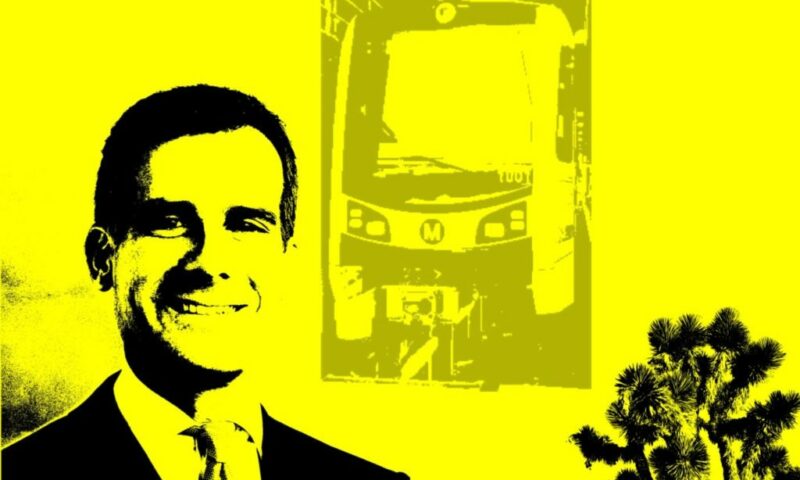

With tongue firmly planted in cheek Thursday, a beaming Los Angeles Mayor Eric Garcetti credited two secret weapons for helping him break a deadlock among a labor coalition, civic groups, Kinkisharyo International LLC and the city to craft a compromise to save jobs and keep construction of new light rail cars in Palmdale: “bad pizza and smaller meeting rooms.”
Garcetti also serves as chair of the county’s transit authority, Metro. His self-deprecating quip garnered a hearty laugh while setting the tone for a mostly celebratory morning press conference to announce the new agreement before Thursday’s regular Metro board meeting.
In addition to the mayor and Kinkisharyo reps, news conference attendees included L.A. County Supervisor Mike Antonovich, Palmdale Mayor Jim Ledford Jr., Executive Secretary-Treasurer of the Los Angeles County Federation of Labor Maria Elena Durazo and Antelope Valley business group leaders.
All of the speakers heaped praise upon Garcetti for taking the lead in this 11th-hour process to broker the deal.
» Read more about: How Negotiators Erased Lines Drawn in the Sand to Create Jobs »
I recently sat down with actor Ed O’Neill, best known for his role as Al Bundy in the Fox TV Network sitcom, Married With Children, and who is currently starring in ABC’s award-winning comedy, Modern Family, which will be honored next week at the Los Angeles Alliance for a New Economy’s 2014 City of Justice Awards Dinner. Here’s the second in a series of clips from that interview. (Full transcript here.)
» Read more about: Watch Now: Actor Ed O’Neill on His Teamster Roots »
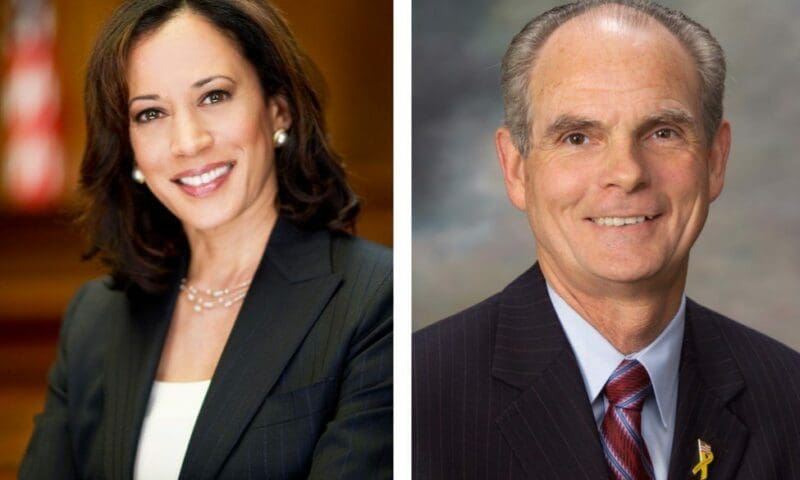

California pension cutters suffered another setback last week when a state appellate court rejected their claims that ballot language written by Attorney General Kamala Harris showed political bias.
The decision by Sacramento’s 3rd District Court of Appeal “dismissed as moot” San Jose Mayor Chuck Reed’s appeal of a lower court ruling. This effectively leaves in place Sacramento Superior Court Judge Allen Sumner’s March decision that Reed had failed to prove Harris’ ballot summary was misleading.
“We’re not going to get a hearing on the merits,” Reed told Capital & Main. “It shows how difficult it is to try to get through the court system in an election cycle; it means you have to start earlier.”
Legally, the two rulings sound a final death knell for Reed’s contentious statewide campaign to put his self-described Pension Reform Act of 2014 before California voters. In practical terms,
» Read more about: Pension Cutters Lose in Court, Vow 2016 Ballot Bid »
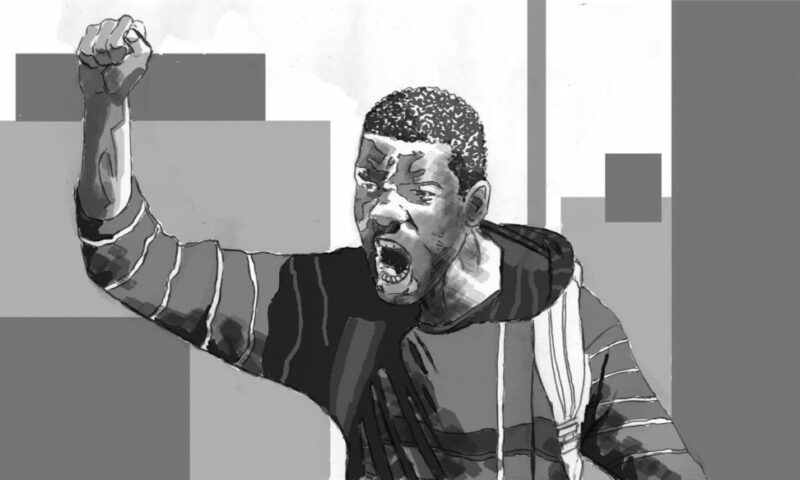

Little Joe had two cowboys, two kings and there was a third king face up on the table. They were playing Texas Hold’em and it had turned up on the flop—the first three cards laid down with two more to go. These were the common cards each player could try and make a hand. In Hold’em, you could play only one card of your two down ones or, if everybody had crap, all could play the five that eventually wound up in the middle of the table. At the moment, his three kings was a pretty good hand to have.
“I’ll see you fifty and I’ll bump it fifty,” Joanie Kriss said confidently. Of the three cards face up on deck, two were clubs. That might mean she had two clubs of her own and was chasing the fifth card in suit to make a flush … or was bluffing. The stakes were not Vegas level;
» Read more about: The Dixon Family Chronicles: “No Justice …” »
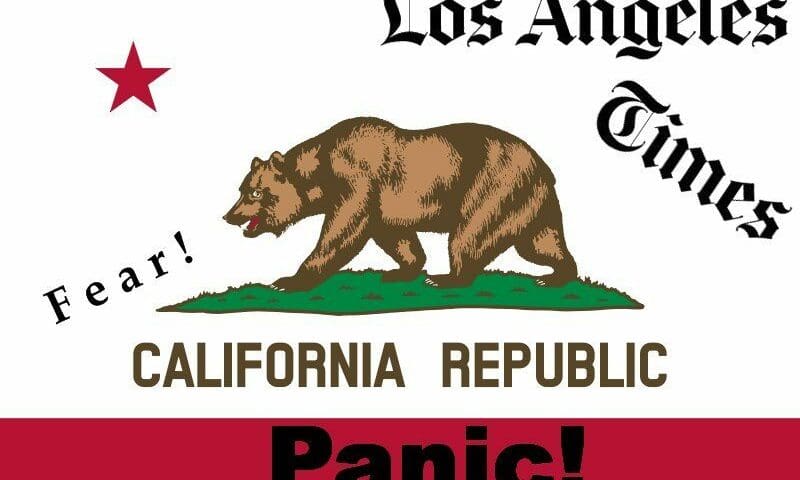
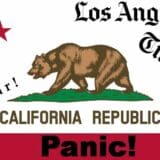
“California pension funds are running dry,” warned a recent Los Angeles Times headline.
“The unfunded liability— that’s the difference between promised benefits and projected funds to fulfill those obligations — grew from about $6.3 billion in 2003 to a little more than $198 billion in 2013,” Santa Rosa’s Press Democrat chimed in, helpfully doing the math to point out that’s a 30-fold increase in 11 years.
“The system, in short, is completely, utterly broken,” concluded the Orange County Register.
Despite nothing significant changing in the retirement plans themselves, public employee pensions are back in the news, and apparently panic is in the air.
Why? In late October State Controller John Chiang posted data on 130 state and local pension funds as part of his new By the Numbers website.
» Read more about: California Pensions: Encouraging News v. Scary Headlines »
Steve Clemons is Washington editor-at-large for The Atlantic, whose spin-off site, CityLab, covers new ideas and issues facing urban metro areas worldwide. Each year CityLab convenes a gathering of global city leaders in person to discuss innovative ideas and projects that are emerging in urban communities. This year CityLab’s conference was held at the Ace Hotel in downtown Los Angeles. Shortly afterward, Capital & Main spoke to Clemons. In this video clip he speaks of L.A.’s past and its new allure.
Also Watch: Steve Clemons on Government
» Read more about: Steve Clemons on L.A.’s Hard Times and Unbelievably Cool Hybrid Stuff »
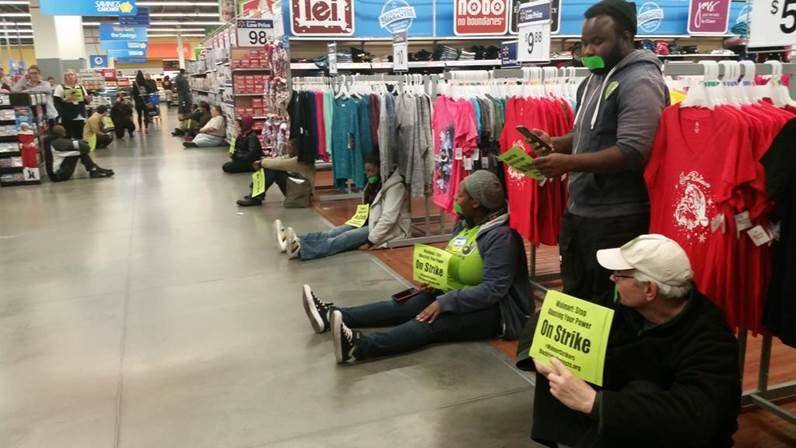
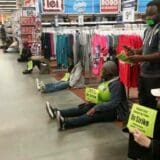

Walmart won’t pay its employees enough to afford Thanksgiving dinner, so they’re holding food drives for their employees. Seriously. It’s been reported that an Oklahoma City Walmart set up bins for underpaid associates to donate canned goods to other underpaid associates.
Walmart workers have a better idea: Pay us enough to put food on the table.
On Black Friday, the busiest shopping day of the year, tens of millions of Americans will travel to Walmart stores to look for holiday discounts on computers, toys and cellphones as well as to buy groceries and basic household items. But at more than 1,600 of Walmart’s 4,000 stores, shoppers will be greeted by Walmart employees handing out leaflets and holding picket signs — “Walmart: Stop Bullying, Stop Firing, Start Paying” and “We’re Drawing a Line at the Poverty Line: $25,000/year” — protesting the company’s abusive labor practices, including poverty-level wages,
» Read more about: Black Friday Protests Push Back Against Walmart »
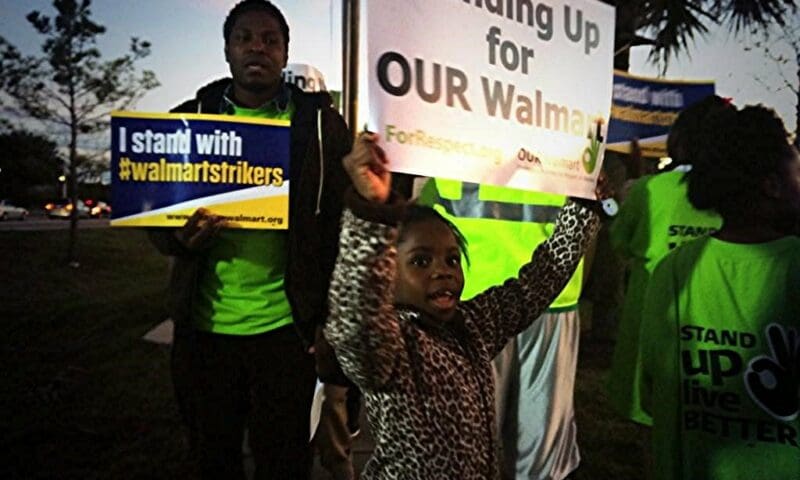

On November 13, Walmart associates in Los Angeles kicked off this year’s Black Friday strikes by sitting down in the aisles of the Crenshaw Walmart store to protest Walmart’s alleged intimidation. Later that evening 23 workers and community members were arrested at the Pico Rivera store.
But that’s just the beginning. This Black Friday, Walmart workers are striking again on the biggest shopping day of the year. Walmart associates are sick of struggling to get by while working for a company owned by the world’s wealthiest family. The Walton family that controls Walmart has more wealth than 43 percent of Americans combined, a perfect picture of everything that’s wrong with our unequal economy.
Walmart associates are striking to stop retaliation against workers who exercise their rights and to call on the company to publicly commit to paying $15 an hour and providing full-time work.
As Los Angeles and the Los Angeles Alliance for a New Economy (LAANE) work to raise the wage for all Angelenos,
» Read more about: Walmart Strikers: ‘All Out on Black Friday!’ »


From boiling the soon-to-be-mashed potatoes to rinsing the fruits and vegetables, clean water is an essential ingredient in every household that will be preparing Thanksgiving dinner.
And yet, the absence of adequate federal support means our public water systems are under threat. Over the next 20 years, U.S. water systems will likely require a staggering $2.8 to $4.8 trillion investment, and for-profit corporations such as Veolia and Suez are jumping at the opportunity to privatize America’s water supply so they can pocket a portion of those trillions we’ll need to spend.
A new report released by Corporate Accountability International with Public Services International Research Unit (PSIRU), shows that promises made by private water corporations fail to materialize or come at the expense of deferred infrastructure maintenance, skyrocketing water rates and risks to public health.
The good news, however, is that cities across the country and all over the world are increasingly rejecting water privatization and are taking back public control of their water systems.
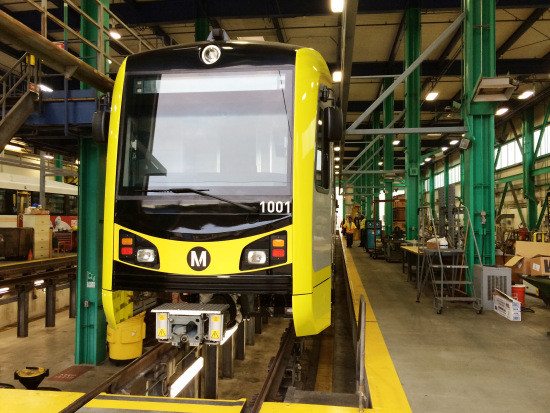

In a dramatic turnaround to what only last month was described as a hopeless impasse, Los Angeles Mayor and L.A. County Metropolitan Transportation Authority (Metro) Chair Eric Garcetti announced Tuesday that an agreement has been reached between Kinkisharyo International, LLC and labor and community groups to expand its L.A. County manufacturing operations for its next delivery of Metro light rail cars.
The mayor’s office said the agreement will net the county a total of 250 new jobs as Kinkisharyo expands the light rail car assembly and testing operations at its existing plant in Palmdale. The accord also includes a “neutrality agreement” (stating Kinkisharyo won’t contest attempts to unionize its workforce), as well as a commitment to explore additional skills training and assistance for disadvantaged L.A. County workers.
The agreement covers a total of 175 cars slated for assembly at the facility, including the 78 that Kinkisharyo is currently assembling under a 2012 Metro contract,
» Read more about: Rail Car Pact to Bring Jobs to L.A. County »
Earlier this month I sat down with actor Ed O’Neill, best known for his role as Al Bundy in the Fox TV Network sitcom, Married With Children, and who is currently starring in ABC’s award-winning comedy, Modern Family, which will be honored in December at the Los Angeles Alliance for a New Economy’s 2014 City of Justice Awards Dinner. Here’s the first in a series of clips from that interview. (Full transcript here.)
» Read more about: Watch Now: Ed O’Neill on Pushing America’s Hot Buttons »


This month the U.S. and China reached an historic and unexpected agreement on climate change. As a follow-up, China announced that it will cap its coal consumption by 2020. The U.S. and China are the largest emitters of greenhouse gases in the world, and the world’s largest economies. What does this mean for us?
Climate change isn’t something that we can wait 50 or 100 years to deal with – it is happening right now. The U.S. is seeing more severe weather, unprecedented sea level rise, loss of habitat and expanding ranges of pests and diseases.
The primary driver of climate change is the carbon that humans put into the atmosphere and the biggest producers of carbon are coal-fired power plants that generate electricity. China is now the world’s largest user of coal.
In the climate change agreement, China promised to reach its peak emission of carbon and other greenhouse gases,
» Read more about: U.S., China Clear the Air With Historic Agreement »


The two uniformed cops from Southwest Station who’d remained behind stood off to one side as residents of the Eden Arms and their neighbors continued to speculate about the shooting. Various theories were voiced but there was agreement of a sort on some facts derived from the eyewitnesses. A late model Toyota, or it could have been a Honda, rounded the far corner at a normal rate of speed. The vehicle slowed as it approached mid-block where the Arms was located. A smoked passenger window slid down some and a barrel of a gun was then rested on the window. Blam, blam, blam went the gunfire and the car roared away. The odd thing was, the weapon didn’t seem aimed at the few pedestrians around. Rather it seemed to be pointed upward.
The cops speculated the bullet that took out the window to the laundry room was a ricochet, possibly off the metal casing of the switch box on one of the telephone poles.
» Read more about: The Dixon Family Chronicles: “A Little Past Seven” »